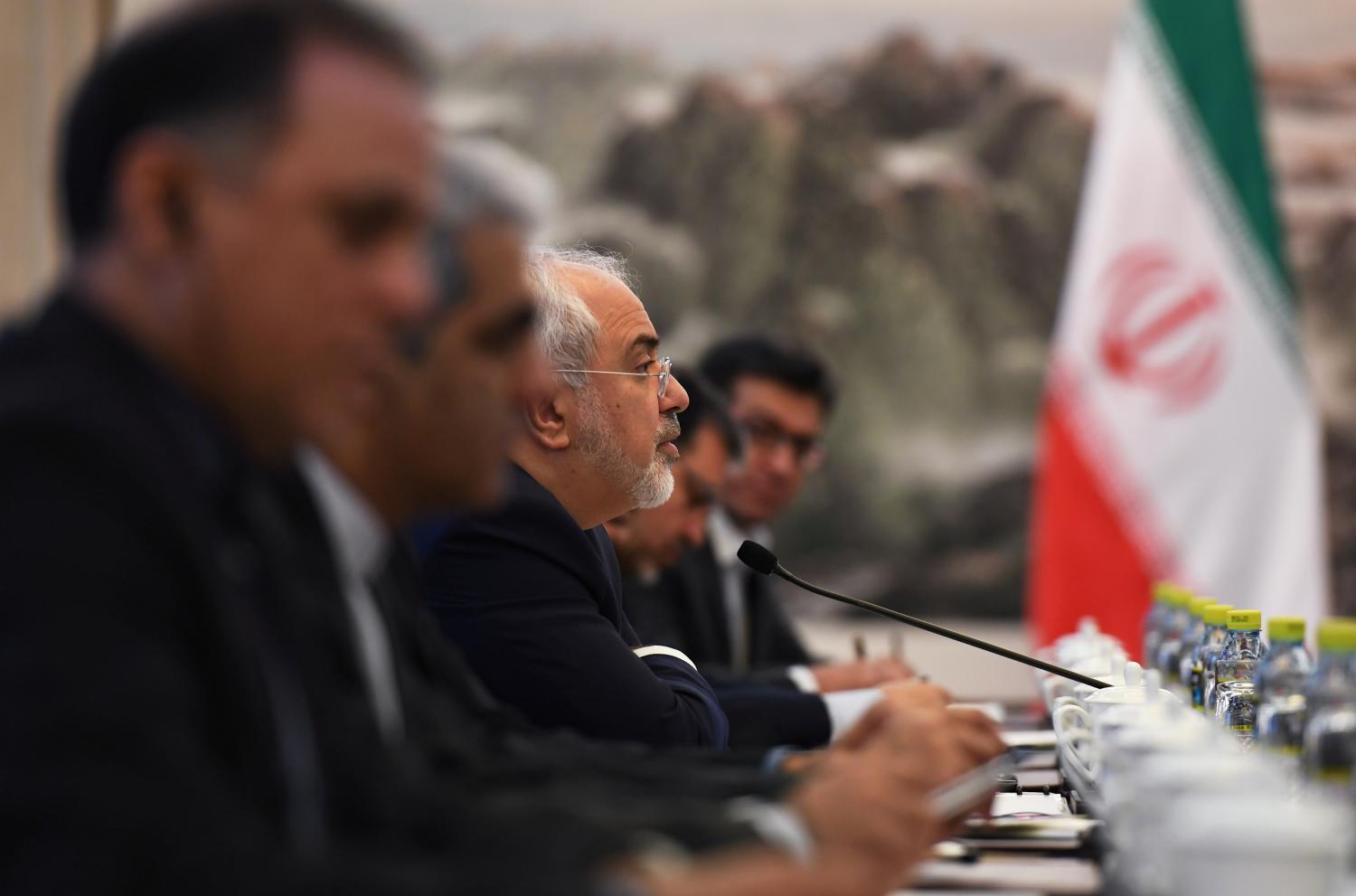The Joint Comprehensive Plan of Action (JCPOA) is a much misunderstood document. This was inevitable, given its technical complexity and the need for countries to have issues presented in such a way as to provide domestic cover for positions taken. The issue of sanctions “snapback” is no exception; it is presented in the document in ways that have led to many misconceptions.
The first misconception is that, since sanctions “snapback” is not explicitly mentioned in the document, it is not an agreed concept. Certainly, it would have been better had the final text used the term in explicit fashion. But this would have been hard to negotiate and even harder for Iran to sell at home. This omission does not mean, however, that “snapback” isn’t part of the deal—it is. The text makes abundantly clear that the possible end result of the agreed dispute resolution process is that “measures” previously in place would come back into place.
It also makes clear, in paragraph 36 of the main text, that failure on Iran’s part to fulfill its part of the bargain could lead any of the P5+1 states to “cease performing its commitments under this JCPOA in whole or in part and/or notify the UN Security Council that it believes the issue constitutes significant non-performance.” Since the commitments taken by the P5+1 involve sanctions relief, it is more than reasonable to argue that this means sanctions come back into force. This is the stated interpretation of the negotiators, who would know.
Second, the “grandfather” provision in the text has led many to argue that “snapback” will be effectively neutered by the negotiation of long-term deals with Iran. However, this confusion betrays a lack of understanding of how sanctions work and, more astonishingly, how U.S. jurisprudence works. A fundamental concept of American law is that one cannot be punished for something that was not a crime when it occurred. Even a non-lawyer like me knows the term “ex post facto” and its place in Article I of the U.S. Constitution. What the nuclear deal says, in paragraph 37 of the main text, is that no sanctions will be imposed on companies or persons for engaging in conduct that was legal at the time in which it was undertaken. This is how U.S. sanctions have been enforced all along.
What is not stated here (and, frankly, did not need to be stated as it is U.S. common practice as well as common sense) is that any activities pursued after “snapback” is triggered are potentially sanctionable. This is because U.S. sanctions laws are not necessarily attached to contract performance, but rather specific bad acts. It is the fact that goods are transferred, funds are paid, and expertise is provided that makes an activity sanctionable, not whether there is a contract or not. U.S. sanctions have always focused on the bad act, not the vehicle in which it is undertaken. And for good reason—otherwise, we would have to be concerned about the specific wording of contracts. Simply put, we have not and should not care what a contract says. Our focus has been, and should continue to be, on the practical results.
Third, many have focused on the fact that Iran can walk away from the nuclear deal at any time and especially if sanctions are reimposed, suggesting that this is a fatal flaw. If it is, then it is a fatal flaw of almost every treaty ever entered into by a government. Withdrawal clauses are a common feature of treaties and agreements. The Nonproliferation Treaty (NPT) itself contains a withdrawal provision, meaning that even the fundamental concept that a country renounces its option to acquire nuclear weapons under the NPT is subject to revision if the country decides circumstances warrant it. The source of this concept is not the weakness of international arms control efforts or a failure of the Obama administration, but the Treaty of Westphalia in 1648, which established the concept of national sovereignty.
What’s missing from the discussion of an Iranian withdrawal from the JCPOA is the fact that consequences would befall it, just as a withdrawal from the NPT by Iran (or any other country, for that matter) would prompt consequences. Should Iran decide to withdraw from the deal, then it would need to defend its decision to do so. The context would be tremendously important: Withdrawal because one Iranian bank is sanctioned for terrorism support would hardly be seen as a proportional Iranian response, while withdrawal because of a U.S. move to sanction all Iranian oil exports due to Iranian funding of terrorism from oil profits could be seen as more reasonable or appropriate. Likewise, an Iranian decision to withdraw from the JCPOA over a U.S. decision to punish it through the reapplication of sanctions on a particular Iranian entity for a breach of the deal would likely weigh against Iran in international public opinion rather than for it.
“Snapback” is a critically important tool in the JCPOA. It has its limitations. But, vulnerability to poor word choice in the text, grandfathering, and extortion over withdrawal are not among them.
The Brookings Institution is committed to quality, independence, and impact.
We are supported by a diverse array of funders. In line with our values and policies, each Brookings publication represents the sole views of its author(s).





Commentary
Countering misconceptions about sanctions ‘snapback’
August 5, 2015